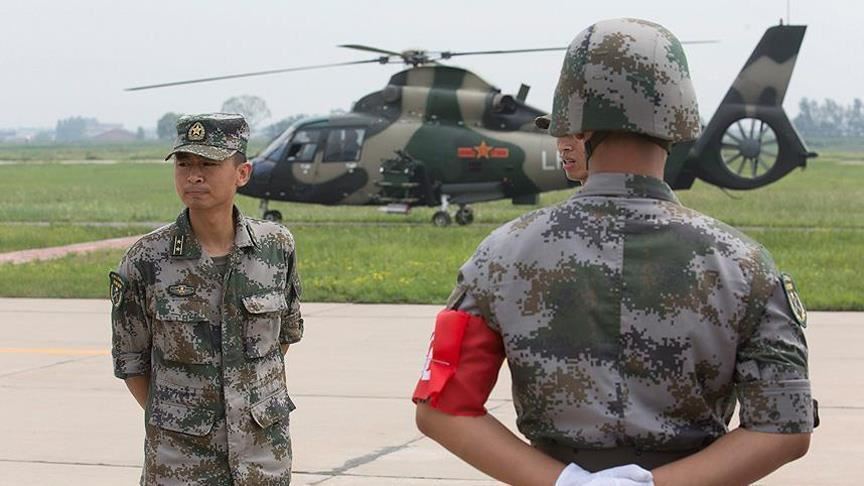China retreat from border clash site: Indian Army
Disengagement of Chinese troops begins as part of agreement with Indian military commanders
 FILE PHOTO
FILE PHOTO
NEW DELHI, India
Indian army sources claimed on Monday that Chinese troops began to withdraw from the Galwan Valley area in the northern Himalayan region of Ladakh, where recent clashes took place between the two sides.
In a first sign of disengagement from the site of the June 15 clash Chinese troops were seen "dismantling tents and moving back in vehicles," an official from the Indian Army told Anadolu Agency on condition of anonymity.
Defensive structures at patrolling point 14, the main site of the June 15 clash that killed 20 Indian soldiers including a colonel, were removed and the Chinese army moved back by "at least a mile [1.6 kilometers]", said the official, adding that the Indian army was closely monitoring the disengagement of troops.
However, Indian daily The Economic Times reported that with the retreat from both sides, a four-kilometer (2.5 miles) strip of no man's land was demarcated and both armies agreed not to carry out aerial surveillance in the region.
Meanwhile, Chinese Foreign Ministry spokesman Zhao Lijian said: "There is progress made on front line troops taking effective measures to disengage and ease the tensions."
According to China's state-run Global Times newspaper, Lijian underlined that Beijing hoped India would work with China and "through concrete actions implement the consensus, and continue close communication through military and diplomatic channels to jointly push for the de-escalation of the border region."
'Maintenance of peace and tranquillity'
In a phone call between the countries' special representatives on the border issue -- both sides agreed on the need to "ensure complete disengagement of troops" along the de facto border known as the Line of Actual Control (LAC), according to a press release by the Indian Foreign Ministry on Monday.
The ministry underlined that Indian National Security Advisor Ajit Doval and China's Foreign Minister Wang Yi sought to maintain the "peace and tranquillity in the India-China border areas [...] for the further development of our bilateral relations and that two sides should not allow differences to become disputes."
Twenty Indian soldiers, including a colonel, were killed in a "violent" faceoff on June 15 with Chinese troops in the high-altitude Ladakh region.
The massive escalation occurred after weeks of tension at the Line of Actual Control between the two countries.
India has said the clashes happened "as a result of an attempt by the Chinese side to unilaterally change the status quo."
On Friday, Modi visited the region to address the forces at the forward post and meet injured troops.
The border skirmishes, which started on May 5, at the Galwan Valley and then at the Naku La mountain pass in northeastern Sikkim three days later led to a military and diplomatic impasse between the two countries.
Thousands of soldiers on both sides had been camping along the un-demarcated LAC.
Anadolu Agency website contains only a portion of the news stories offered to subscribers in the AA News Broadcasting System (HAS), and in summarized form. Please contact us for subscription options.







